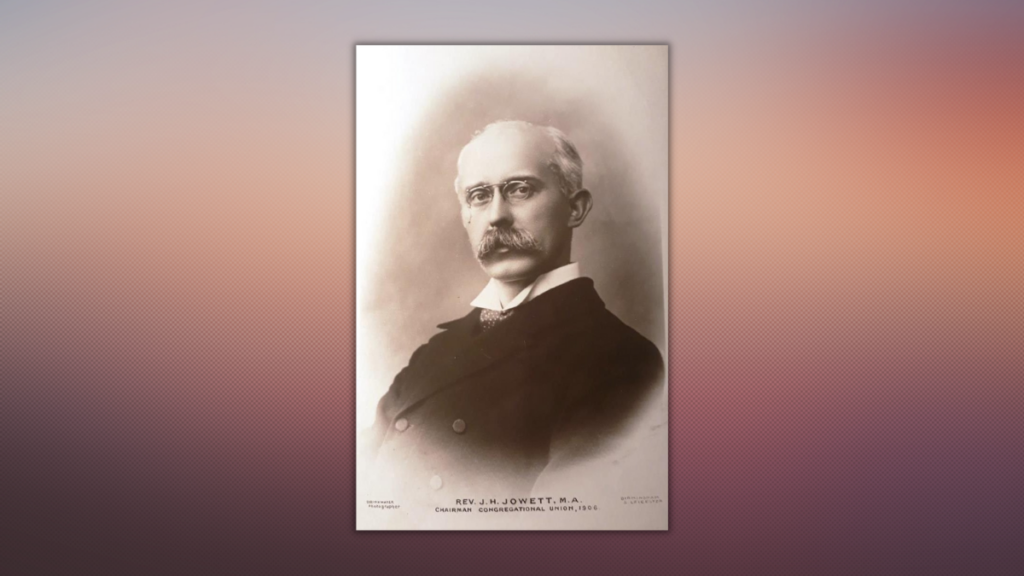By Mike Foreman
Alabama Baptist pastor
Young adults are leaving the Church at an alarming rate. According to recent research by Lifeway, 66% of American young adults who attended a Protestant church regularly for at least a year as teenagers say they dropped out for at least a year between the ages of 18 and 22. This trend is a call to action for every church leader and member as the future of our churches and the spiritual health of future generations depend on how we address this issue.

One of the primary reasons young adults say they are leaving the Church is because they feel it doesn’t address current, real-world issues that matter to them.
Also, instances of scandal, moral failure or even minor inconsistencies can lead to a sense of disillusionment. When young adults see leaders not living up to the standards they set for others, it breeds distrust.
As young adults encounter diverse worldviews and scientific advancements that challenge their beliefs, they need a space to explore questions thoughtfully and respectfully, which is not always comfortable in church settings.
Community and belonging is crucial for young adults. If the Church fails to provide a welcoming, supportive environment where young adults can form genuine relationships, they will look elsewhere. Authentic connections and a sense of belonging are key to keeping young adults engaged in church life.
So, what can we do?
I’d like to suggest these ideas for re-engaging young adults:
- Make faith relevant.
Address contemporary issues directly. Sermons and discussions should integrate real-life applications and relatable examples that resonate with young adult experiences. By showing how faith intersects with
the issues they care about, the Church can become more relevant and meaningful.
- Be authentic and transparent.
Church leaders need to model integrity and authenticity. This means being open about struggles, failures and the journey of faith. When leaders are transparent and genuine, it builds trust and shows young adults the Church is a place where they can be real and vulnerable too.
- Embrace technology.
Technology is a powerful tool for connecting with young adults. Churches can leverage social media, online services and digital communities to reach young adults where they are.
- Create community.
Creating a welcoming community for young adults is crucial. The Church needs to become a place where young adults feel welcomed, supported and heard. They need older adults who will not look down on them but be willing to build meaningful and authentic relationships with them.
- Address doubts and questions.
Open dialogue about faith, doubts and intellectual challenges is crucial. Hosting Q&A sessions, discussion groups or apologetics courses can provide young adults with the space they need to explore their questions and deepen their understanding of faith. Encouraging these conversations shows the Church values them.
- Emphasize discipleship.
Discipleship plays a significant role in guiding young adults on their faith journey. By pairing young adults with older disciples who can offer support, wisdom and encouragement, the Church can help them navigate the challenges of life and faith and foster deep, meaningful relationships.
Final thoughts
The trend of young adults leaving the Church offers an opportunity for growth and renewal.
By understanding the reasons for their departure and implementing strategies to re-engage them, we can create an environment that is relevant, authentic and welcoming.
Let us commit to taking proactive steps to show young adults the Church is a place where they can find community, purpose and a deeper connection to God.
“College students need to learn how to think critically and find what is truth and talk respectfully about … crucial topics,” said Selin Philip, associate professor at Colorado Christian University, regarding finding meaning beyond earning a degree. She also directs the Ph.D. in counselor education and supervision program.
“I’m a better minister because I can sit with a student and say, ‘I’ve been where you are, and I’m here to help,’” said Shannon Hughes, campus minister for Jacksonville State University, on how her own struggles with mental health have strengthened her ministry.
“We need to expand [the Church] not just by evangelism but by discipling people to follow Jesus,” said Alex Kendrick, who directs “The Forge.” The film’s goal, he added, is to “stir that focus back to discipleship” in churches.
“Detours, roadblocks, fires and storms happen every day,” said Mark Bethea, pastor of FBC Montgomery. “We press onward and upward. We’ve got more gospel sharing and showing left to do!”
Tribulation promised but so is peace
By David Chancey
davidchancey.com
We shouldn’t be surprised when our day goes sideways, for Jesus said, “In the world, you will have tribulation; but be of good cheer, I have overcome the world (John 16:33).”
The word “tribulation” means to press together, to compress. It’s the picture of crushing grapes.
Sometimes tribulations are merely aggravations and inconveniences rather than catastrophes. But other times, life ambushes us with affliction.
Navigating chaos
How do we possess peace while enduring chaos?
In the first part of verse 33, Jesus said, “These things I have spoken to you that in Me you may have peace.”
Notice His contrast. In the world, tribulation. In Me, peace.
When our focus is on Jesus and we’re relying on Him, we find peace while enduring crises.
What Jesus endured
Interestingly, as Jesus spoke these words in the Upper Room on the night before His crucifixion, Judas the betrayer slipped out of the room to meet with Jesus’ enemies to plot His arrest.
Soon, Jesus would be arrested, forsaken by His closest friends, denied, humiliated, tortured and executed.
Yet, He experienced peace. So can we. Jesus is the key to this deep, spiritual peace.
‘Overcome the world’
The old bumper sticker is still true:
“No Jesus, No Peace — Know Jesus, Know Peace.”
Tribulation is promised, but peace is possible in Jesus because, as Jesus proclaimed, “I have overcome the world.”
Words are powerful since they can make or break another person. Words can be gifts or weapons. Words can be bridges for understanding or barriers to relationships. A college president frequently shared a quotation attributed to various authors: “Three things cannot come back: the spoken word, the spent arrow and the lost opportunity.” Knowing that our words can be hurtful and irretrievable should motivate us to choose them with care. King David had a model prayer: “Set a watch, O LORD, before my mouth; keep the door of my lips (Ps. 141:3).”
Michael J. Brooks, pastor
Siluria Baptist Church
Alabaster
What scene is currently holding your attention? Are you standing in a messy and sluggish place? Are you in a desert of desolation and hopelessness?
Arise, look up, and take God by the hand. For He is not finished with you, and He is not finished with your future.
Ask the Lord to open your eyes to see what you may not currently be seeing. Ask Him to let you see those yellow flowers of blessings.
Read in Genesis 21:14–19 about another who experienced a new chapter in life by trusting God’s guidance.
O’Shea Lowery
Entrusted Hope Ministries
Preacher and author A.J. Gordon wrote, “We do not stand in this world bearing witness to Christ, but we stand in Christ bearing witness to this world.”
Jesus explains that as believers we have a divine partner to assist us (John 15:26–27). Jesus further encourages His followers with three statements about witnessing to a hostile world.
First, there is the mission of the grace of God.
John 16:1–4 reads, “… They will put you out of the synagogues; yes, the time is coming that whoever kills you will think that he offers God service. And these things they will do to you because they have not known the Father nor Me. But these things I have told you, that when the time comes, you may remember that I told you of them. ‘And these things I did not say to you at the beginning, because I was with you.’”
Second, there is the manifestation of the glory of God.
John 16:5–6 reads, “But now I go away to Him who sent Me, and … sorrow has filled your heart.” Jesus knew they were more concerned about their grief than His glory. We must remember as witnesses to a hostile world our focus is to be on His glory, not on our grief.
Third, there is the message of the gospel of God.
John 16:7–11 reads, “… the Helper … will convict the world of sin and of righteousness and of judgment: of sin, because they do not believe in Me; of righteousness, because I go to My Father and you see Me no more; of judgment, because the ruler of this world is judged.” We see from this passage that the Holy Spirit deals with unbelief, unrighteousness and ungodliness. May we boldly declare Jesus Christ died for the sins of the world and rose again for the justification of all who will believe in Him.
Franklin L. Kirksey
Robertsdale







Share with others: